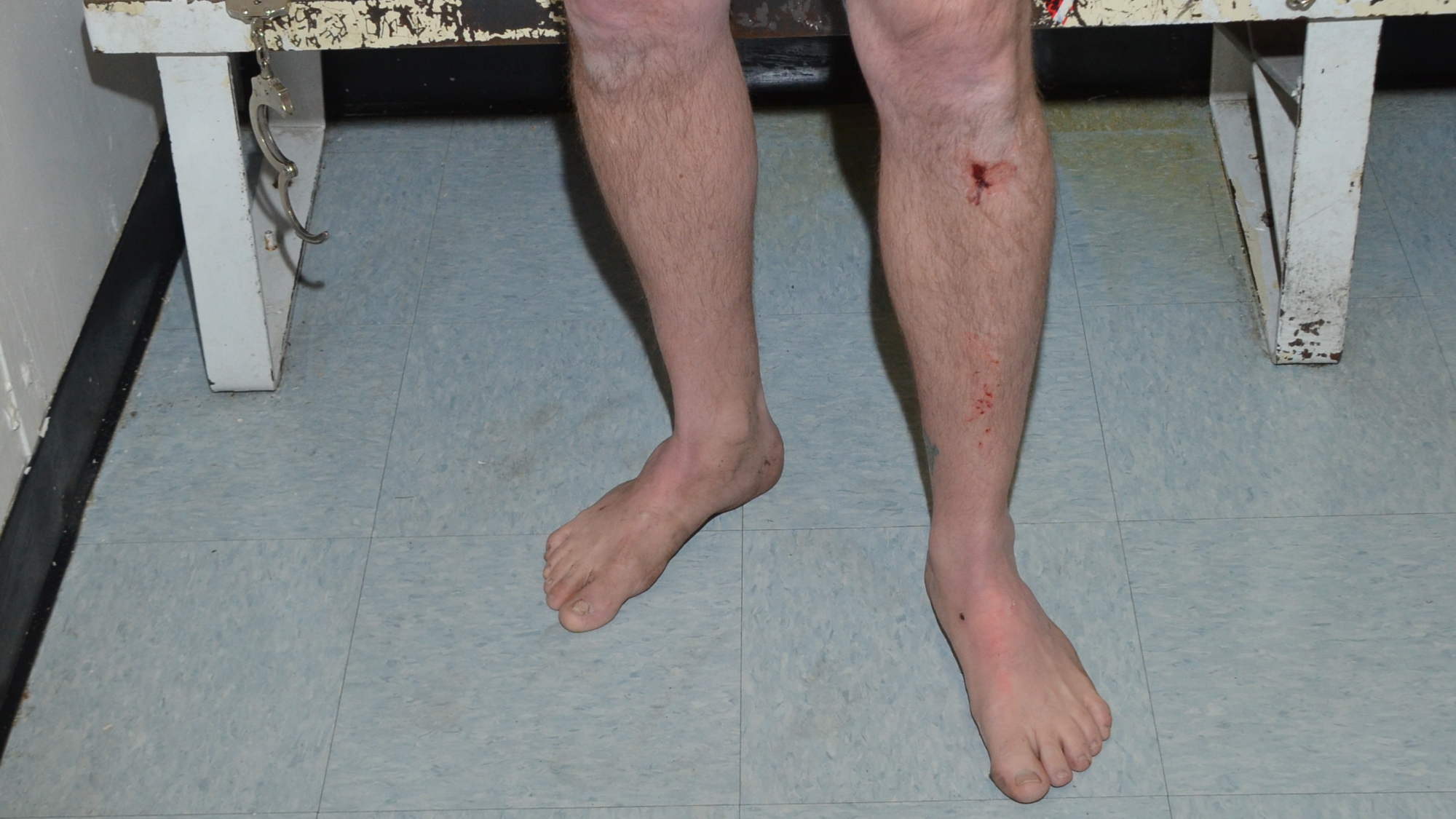Marijuana Murder? : A Reporter’s Notebook about the case of Richard Kirk

Marijuana Murder?: A Reporter’s Notebook about the case of Richard Kirk
I remember learning about the Richard Kirk case when it happened in 2014. It was stunning. Recreational marijuana had been newly legalized in Colorado.
Marijuana edibles were for sale and accessible.
Richard Kirk bought one to try.
And then he killed his wife, Kris.
I was a national correspondent for Al Jazeera America at the time, assigned to cover stories related to Colorado’s green rush and the implementation of marijuana legalization for recreational use.
Edibles, it seemed, were an unexpected challenge for the state.
As the former senior director of enforcement for the Colorado Department of Revenue told me in 2015, “We really didn’t anticipate we’d have the challenges with possible overconsumption of edibles on the recreational market.”
Medical marijuana consumers were extremely knowledgeable about the effects of the psychoactive components of THC and its effects on the body, said Ron Kamerzell, but with the roll-out of recreational marijuana, average consumers needed more information and better regulation to help them consume the drug safely.
There had been three disturbing tragedies linked to marijuana edibles in 2014 and early 2015. A college student, Levy Pongi Thamba jumped to his death from a hotel balcony after consuming 6 times the recommended edible dose, and another young man, Luke Goodman, shot himself to death after eating edibles during a ski trip in Keystone.
The case of Richard Kirk, however, stuck with me. On the night he tried a marijuana edible for the first time, he opened the safe in his house, removed his gun, and shot his wife as she was calling 911 to report his erratic, scary behavior.
Was he just a terrible guy who wanted to end a rocky relationship, or did the edible alter his state of mind so significantly that he really didn’t know what he was doing on the night he killed his wife?
I wanted to talk to him to see what he recalled.
He had repeatedly denied interviews while his case was pending.
In 2017, he pleaded guilty to second degree murder and received a 30-year prison sentence.
When the case was complete, I reached out to him about meeting.
And he agreed.
Richard Kirk
After security guards cleared me and a colleague at the Bent County Correctional facility, we walked through a large set of doors into a visitor lounge. The spacious hall, which looked like an empty cafeteria, had vending machines and what resembled a customer service desk at the far back wall. Of course, it wasn’t a customer service desk. It was more of a lookout. A female officer was sitting behind that counter, perched on a high chair, overseeing what was about to go down. She was about 100 ft away from the front entrance of the room.
This was the room where I would come face to face with a man who murdered his beautiful wife.
From the mugshot I had seen of Richard Kirk, he seemed to be a strong, confident middle-aged man, with bright blue eyes, neatly trimmed brown hair, and a barely-there scruff of a goatee lining his mouth and chin. I imagined that he would be tough or intimidating when I walked in to meet him based on what I had read in court papers about his short-temper and what seemed to some people as an aggressive personality.
When I walked into the large cafeteria, there was only one man in the room. He was standing next to a small plastic table with plastic chairs, wearing an old baseball cap with black plastic eyeglasses.
He had a coarse, gray goatee that came to a fluffy point a few inches below his chin. He looked old and apprehensive. When he opened his mouth, I could see the entire bottom row of his teeth had been significantly worn and yellowed from excessive grinding. He looked like he was missing a tooth too – on the side of his mouth.
He wasn’t cuffed, but he was wearing prison-issued clothing.
It took me a minute to realize this was Richard Kirk.
His voice was not tough or violent. He spoke with a quiet, timid tone, as if he had practiced having many private conversations over the last four years, since he had been behind bars awaiting the outcome of the case.
Worried I had only seen mugshots and arrest photos of him, he wanted to show me images that he felt were more representative of him, during happier times, with his wife and three boys.
The family he had single-handedly destroyed.
He had a small notebook with about 10 family photos tucked beneath the front cover. He cried when he described the memories that went with each one as he had not interacted with his boys for more than four years.
“I miss contact. I miss the loving contact of my family, the embraces of my wife, the scent of clean pillows,” he sobbed, explaining that he hadn’t had direct contact with his children since the night he was arrested.
“I miss everything about my boys. There is no one, particular thing. I love them with all my heart. For the longest time, I’ve had this picture in my mind of being released and walking out into the grass of a jailhouse and my three boys coming, running towards me, wrapping their arms around me and saying they love me.”
Kirk said he would want his children to know that he is sorry they were in the home the night he shot their mother.
Consuming an edible without a full understanding of how it could affect him, he said, was the worst decision he had ever made in his life.
“I know that Kris knows that I didn’t do it on purpose. I know she knows that,” he said.
The Night of the Murder
Kirk blamed his first edible experience on his addiction to other pain killers. Prior to trying the newly legalized recreational drug, Kirk had endured many years of back pain and became dependent on Vicodin.
When he ran out of tablets in April 2014, he said he considered marijuana as a possible way to address his pain and his dependence on pills.
In April 2014, after an evening running errands, Kirk stopped by a dispensary, browsed for nearly 20 minutes, and bought a 100 mg orange-ginger gummy. When he returned home to his wife and kids, he secretly tried a small portion of the candy and waited for the effects.
Kirk said the high took more than an hour to kick-in, and when it did, it was unlike anything he had previously experienced.
His memory of the night is patchy. He recalled jumping out of a window when he could’ve walked through a nearby door. He remembered scraping his shins and feeling sore. He remembered fixating on the numbers in his home address and pressuring one of his sons to recite them out loud.
“He said, “Dad, it’s 21-12, 2-1-12, and something – when he said that number, something in me just - I just lost myself. I didn’t know where I was. I didn’t know what I was doing. I didn’t know what the threat was. I didn’t know if I was the threat. I didn’t know!” he sobbed.
Kirk said he fumbled with the family safe where he kept a gun, but he said he doesn’t remember why he aimed the weapon at his wife and pulled the trigger
“I didn’t know it was my wife.” he cried. “I thought it was somebody else I guess. That’s the only way I could have done it. I never ever once thought about even hurting my wife or pushing her or anything - let alone taking her life, taking her away from her three boys.”
Kirk’s History
While Kirk insists he never intended to kill his wife, many have questioned whether he had a motive. The relationship, he admitted, was rocky, and the pair had financial difficulty.
“We’re not surprised that he shot someone. It is just that we didn’t think it would be a family member,” Wayne Kohnke, Kris Kirk’s stepfather, told KUSA 9News in Denver in 2017.
According to police records, Kohnke also told detectives he wished Kirk treated Kris better. Police reports show Kohnke felt Kirk “always seemed…like he was on the verge of being out of control,” and had “road rage issues.”
Kris’ sister, Tammy Heman, told investigators Kirk had a “nasty streak” and that she always had a feeling he was capable of hurting her sister.
A colleague reported that Kris “wanted to tell (Kirk) that she didn’t love him anymore.”
Some have questioned whether Kirk planned to kill his wife and used the marijuana as an excuse, a theory Kirk denies but said he understands.
“(That’s) 100 percent false,” said Kirk, explaining that his marital issues with Kris were normal couple problems.
Kirk blames the THC for causing his erratic behavior.
“I never meant to hurt her or take her away from her three boys,” he said, crying. “Or take her three boys away from her.”
Listen to Insight, the investigative podcast from Rocky Mountain PBS, to hear more about the Richard Kirk case.




